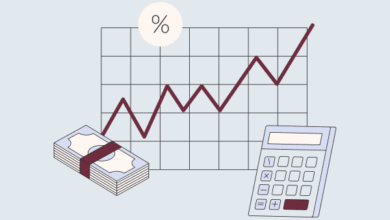None of the most common blood pressure medications increased the risk of depression, some lowered the risk
[ad_1]

Research Highlights:
- Among the 41 most common blood pressure medications, none of them raised the risk of depression, according to an analysis from Denmark.
- The study also found that some high blood pressure medications lowered the risk of depression.
- These findings may help guide medical professionals in selecting the right hypertension medication, particularly for people with a personal or family history of depression.
Embargoed until 4 a.m. CT/5 a.m. ET Monday, Aug. 24, 2020
(NewMediaWire) – August 24, 2020 – DALLAS -None of the 41 most common high blood pressure medications increased the risk of depression, while nine medications appeared to lower it, according to a study from Denmark, published today in Hypertension, an American Heart Association journal.
Depression is common among patients with high blood pressure (also called hypertension), heart disease and stroke, and this is the first study to systematically investigate whether individual blood pressure medications might influence the risk of developing depression.
“It was highly surprising that none of the 41 most-used anti-hypertensives was associated with increased risk of developing depression and that some within each of the three classes of anti-hypertensives showed protective effects against depression,” said Lars Vedel Kessing, M.D., D.M.Sc., lead author of the study and professor of psychiatry at the Psychiatric Center Copenhagen and the University of Copenhagen, Faculty of Health and Medical Sciences in Denmark.
Researchers analyzed real-life data on more than 3.7 million adults who took any of the 41 most-commonly prescribed high blood pressure medications, as reported in health records across several Danish health registries from 2005 to 2015. Thirty-seven of these medications are approved for use in the U.S. by the U.S. Food and Drug Administration. Patients who had been diagnosed with depression or previously prescribed antidepressants were excluded.
The four main categories of blood pressure-lowering medications were reviewed: angiotensin agents (angiotensin converting enzyme inhibitors, ACE inhibitors and angiotensin II receptor blockers, or ARBs); calcium antagonists; beta-blockers; and diuretics.
The analysis found:
- None of the 41 most common high blood pressure medications increased the risk of depression.
- Nine medications – a few within each category – significantly lowered depression risk: 2 of 16 angiotensin agents, 3 of 10 calcium antagonists and 4 of 15 beta-blockers.
- Diuretic medications showed no impact on depression risk.
The nine individual high blood pressure medications found to significantly lower depression risk are enalapril and ramipril (angiotensin agents); amlodipine, verapamil and verapamil combinations (calcium antagonists); and propranolol, atenolol, bisoprolol and carvedilol (beta-blockers). All nine are approved for prescribing in the U.S.
“It is possible that the mechanism involved in decreasing the risk of depression is the anti-inflammatory effect among these nine medications,” Kessing continued. “In the future, it will be important to compare the inflammatory properties of these nine hypertensives that lowered depression risk.” (Low-grade inflammation is common in high blood pressure and heart disease, as well as in depression.)
“Our study’s findings could help guide prescriptions for patients with high blood pressure who are at risk of developing depression, those with prior depression or anxiety, and patients with a family history of depression,” said Kessing. “However, if a patient is doing well with their current blood pressure prescription, there is no reason to switch. If depression develops, a medication switch may be considered to one of the nine anti-hypertensive medications that lowered depression risk.”
The findings of this study are likely generalizable to other populations. However, limitations of the study include it relied on a clinical diagnosis of depression, that it was not a controlled clinical trial that randomly selected which medication patients receive, and that the impact on depression risk was analyzed for each high blood pressure medication individually; they were not tested side by side or as combinations of one or more other antihypertensive medications.
Co-authors are Helene Charlotte Rytgaard, M.Sc., Ph.D.; Claus Thorn Ekstroem, M.Sc., Ph.D.; Christian Torp-Pedersen, M.D., D.M.Sc.; Michael Berk, M.D., Ph.D.; and Thomas Alexander Gerds, M.Sc., Ph.D. Author disclosures are listed in the manuscript.
The study was funded by the Danish National Research Foundation.
Additional Resources:
Statements and conclusions of study authors published in American Heart Association scientific journals are solely those of the study authors and do not necessarily reflect the Association’s policy or position. The Association makes no representation or guarantee as to their accuracy or reliability. The Association receives funding primarily from individuals; foundations and corporations (including pharmaceutical, device manufacturers and other companies) also make donations and fund specific Association programs and events. The Association has strict policies to prevent these relationships from influencing the science content. Revenues from pharmaceutical and device corporations and health insurance providers are available at https://www.heart.org/en/about-us/aha-financial-information.
About the American Heart Association
The American Heart Association is a relentless force for a world of longer, healthier lives. We are dedicated to ensuring equitable health in all communities. Through collaboration with numerous organizations powered by millions of volunteers, we fund innovative research, advocate for the public’s health and share lifesaving resources. The Dallas-based organization has been a leading source of health information for nearly a century. Connect with us on heart.org, Facebook, Twitter or by calling 1-800-AHA-USA1.
###
For Media Inquiries and AHA/ASA Expert Perspective: 214-706-1173
Bridgette McNeill: 214-706-1173, Bridgette.Mcneill@heart.org
For Public Inquiries: 1-800-AHA-USA1 (242-8721)
heart.org and stroke.org
[ad_2]




